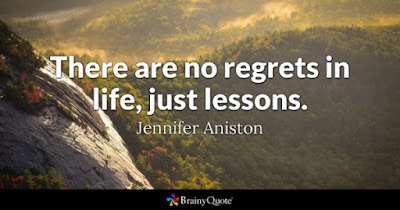A New Appreciation Of The Power In Words
Words are a funny thing. A word can have multiple meanings, like mine (it's mine vs. dig coal in a mine), organ (instrument or body part) or date (fruit, calendar day or person you are going out with). Words can change meaning over time like how tweet used to just be the sound a bird made. Words can even mean different things to different groups of people, if I say something is lit it will mean something very different to my daughter than it would to my mother.
Definitions of words can be a funny thing too. People don't often look up the words they use and yet often we have definitions in our heads that don't match what is in the dictionary. This happened to me recently in a conversation where we were talking about humility. When you look up the word humility in the dictionary it is, "a modest or low view of one's own importance." That is very different then what I always thought of embodied in C.S. Lewis' quote, "A truly humble man will not be thinking about humility: he will not be thinking about himself at all." Also in Rick Warren's quote, derived from Lewis, "Humility is not thinking less of yourself, but thinking of yourself less."
How often what we think about words, the definitions we ascribe to them, determine how we use them. I have a view of humility that is different than what others with a more academic view have. Which one is right? Both could be right but it depends on other factors. How do the definitions we have match societies view of a word? Does our definition match our audiences view? Does the word you are using have a negative or positive connotation? Those things can drastically change what you intend to convey.
Read through this list of words and their definitions:
Definitions of words can be a funny thing too. People don't often look up the words they use and yet often we have definitions in our heads that don't match what is in the dictionary. This happened to me recently in a conversation where we were talking about humility. When you look up the word humility in the dictionary it is, "a modest or low view of one's own importance." That is very different then what I always thought of embodied in C.S. Lewis' quote, "A truly humble man will not be thinking about humility: he will not be thinking about himself at all." Also in Rick Warren's quote, derived from Lewis, "Humility is not thinking less of yourself, but thinking of yourself less."
How often what we think about words, the definitions we ascribe to them, determine how we use them. I have a view of humility that is different than what others with a more academic view have. Which one is right? Both could be right but it depends on other factors. How do the definitions we have match societies view of a word? Does our definition match our audiences view? Does the word you are using have a negative or positive connotation? Those things can drastically change what you intend to convey.
Read through this list of words and their definitions:
- conceited - excessively proud of oneself; vain
- confident - feeling or showing confidence in oneself; self-assured
- full of oneself - very self-satisfied and with an exaggerated sense of self-worth
- authoritative - commanding and self-confident; likely to be respected and obeyed
- cocky - conceited or arrogant, especially in a bold or impudent way
- self-assured - confident in one's own abilities or character
- arrogant - having or revealing an exaggerated sense of one's own importance or abilities
- assertive - having or showing a confident and forceful personality
- egotistical - excessively conceited or absorbed in oneself; self-centered
These words could all roughly be said to have a similar meaning. Yet when used to describe a person some would be taken as a compliment and some would be taken as hurtful.
We need to appreciate the power of words and learn how to use them. They can be like a weapon and inflict damage and pain, either intentionally or accidentally. They can also be a tool that can be used to fix things or build things, and in the hands of a craftsman they can be used to create something truly beautiful.




Comments
Post a Comment